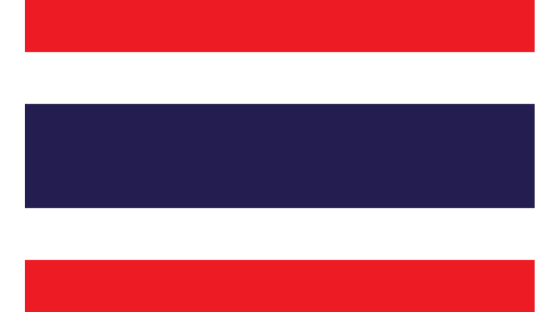-
Services
-
Software Project Delivery
-
Services
-
Solutions
-
Technologies
-
-
Network
-
Discover
-
Regions
-
Industries
-
Must-Read Guide
-
2026 Global Software Outsourcing Rates and Trends GuideDiscover why rates are just one aspect of the Accelerance Global Software Outsourcing Rates & Trends Guide, which offers valuable insights into the software development landscape.
-
-
-
Resources
-
Our Resources
-
Newest White paper
-
Aviation Ecosystem Modernization: A Holistic Approach for Meaningful TransformationModernize aviation by integrating people, processes, technology, and data
-
-
New eBook
-
 The True Cost of Software DevelopmentHidden costs can wreck your budget. Our new eBook breaks down the true cost of outsourcing—get your copy to stay ahead.
The True Cost of Software DevelopmentHidden costs can wreck your budget. Our new eBook breaks down the true cost of outsourcing—get your copy to stay ahead.
-
-
Featured White paper
-
Flow & Process OptimizationIn this white paper, you'll learn to streamline workflows, improve change management, and accelerate results.
-
-
-
About
-
About Accelerance
-
Our History
-
Accelerance: Our HistoryThere's great talent everywhere and great teams everywhere, which is the basis of the Accelerance model.
-
-
Software Without Borders
-
New Episode Every Week!Tune into our podcast Software Without Borders, the essential listen for technology leaders and business owners in the software sector who crave insights from the industry’s top minds.
-
-
Andy's Book
-
Synergea: A Blueprint for Building Effective, Globally Distributed Teams in the New Era of Software DevelopmentPeople are first and locations are secondary when it comes to software development success.
-
-
- Client Reviews
Thailand

Overview
A founding member of the Association of Southeast Asian Nations (ASEAN) and a major US ally, Thailand is the only country in the region never to have been colonized by Europeans. Its tech sector is currently too fragmented to offer reliable opportunities for software outsourcing, but this is a market to watch. Literacy rates are high and IT education and training are offered at all the top universities.
Thai workers are very familiar with Western culture and business processes, thanks to the country’s openness to foreign investors and tourists. Demand for skilled employees in STEM industries has led to the introduction of a 10-year resident visa to attract international talent. Thailand has a good internet and electricity infrastructure, and the government is increasingly investing in the tech landscape.
The Accelerance Global Network is the most curated list of high-quality global teams ever assembled.
16.5hrs
Time Travel (From NY)
Average flight time from NY to the major cities in the country.
49
Partner Innovation capability
The score reflects investment in STEM progrms and IT funding by country.
54
Partner Skill Level
Level of workforce skills and quality of education, including factors such as digital literacy, interpersonal skills, etc.
68
Partner Global Competitiveness
National productivity based on 12 core pillars, including government policy, infrastructure, economic stability, etc.
Low
Software Outsourcing Readiness
Overall rating, based on the maturity of the tech sector, socio-political conditions, and on-the-ground research by Accelerance.

Talent Pool & Education
Tech expertise relating to 5G mobile network rollouts, data analytics, blockchain and other digital transformation skills will be in hot demand, according to a survey by the professional recruitment firm Robert Walters. Huawei has supported Thailand in shaping tech talent for years through numerous initiatives and partnerships with both the private and public sector. Bangkok’s True Digital Park, the largest tech and start-up hub in Southeast Asia, opened in 2023, with integrated commercial/residential areas and a 24-hour “lifestyle street.” The park is a critical driver for the development of the startup and innovation ecosystem in Thailand.
Since 2014, the size of Thailand’s workforce working in science and technology related fields has increased by a fifth to more than two million people. The surge in demand for skilled employees in these industries has led to the introduction of a new long-term resident visa to attract international talent. Thailand’s Board of Investment is also offering incentives, including multi-year tax holidays and training grants, to companies investing in the establishment of education and vocational training institutes specializing in STEM.
Language
The official language is Thai. Few locals are fluent in English outside the international business community. However, companies that aspire to be global players, such as software development firms, recruit for English proficiency. Many students study English as a second language through to university level and communication skills are significantly higher among young people and in urban centers.

Economic Outlook
Thailand is the second-largest economy in Southeast Asia and serves as an economic anchor for its developing neighbor countries. Its own economic climate recovered to pre-pandemic levels in 2023, driven by a recovery in tourism and private consumption. Despite domestic political uncertainty, the economy appears resilient and is expected to advance at a moderate pace, according to international commentators. Public-private investment partnerships are projected to remain a key driver, in line with the government’s ambitious, multi billion-dollar infrastructure blueprint. The National Strategic Plan (2017-2036) places the emphasis on improving the business environment, boosting the country's competitiveness and long-term economic performance through the development of rail, road, airport, and electricity infrastructures.
Thailand's planned digital wallet program, potentially amounting to 2.7% of GDP, could boost near-term growth further, according to a World Bank report. However, its dependency on energy imports risks leading to another inflationary surge, due to heightened geopolitical conflict and high oil prices. Air pollution is a major economic and public health issue in Thailand, which has set a goal of reduced carbon emissions by 30% by 2030 and is currently revising its Climate Change Act.
Political Conditions
The past year has been a period of polarisation in the country’s politics. Srettha Thavisin, a former real estate tycoon who became Prime Minister in the 2023 elections, is gone. So, too, is the reformist Move Forward party, which won most seats and the popular vote but could not form a government.
They were ousted following decisions by the Constitutional Court in August 2024. The Move Forward party was dissolved after the court ruled its campaign to amend the lèse-majesté law, under which insults or threats to the King are a criminal offense, amounted to an attempt to overthrow Thailand’s constitutional monarchy.
In a separate ruling soon after, the court found Srettha guilty of ethics breaches for the cabinet appointment of a man convicted of attempting to bribe the courts. Srettha was dismissed and all cabinet ministers were required to vacate their positions.
Thailand’s House of Representatives has since elected Paetongtarn Shinawatra as Prime Minister, at 37, the country’s youngest premier. The leader of the The Pheu Thai party, she is the daughter of former Prime Minister Thaksin Shinawatra, who was unseated in a political coup in 2006 after being accused of corruption and fled into exile. After returning to Thailand in 2023, he was charged with royal defamation relating to remarks he made during an interview with South Korean media in 2015. His trial is set for 2025.
Learn more about our customer stories.
Looking for a customer story in a specific technology or industry? Discover compelling customer narratives within a specific technology or industry that resonate with your unique software development needs.
